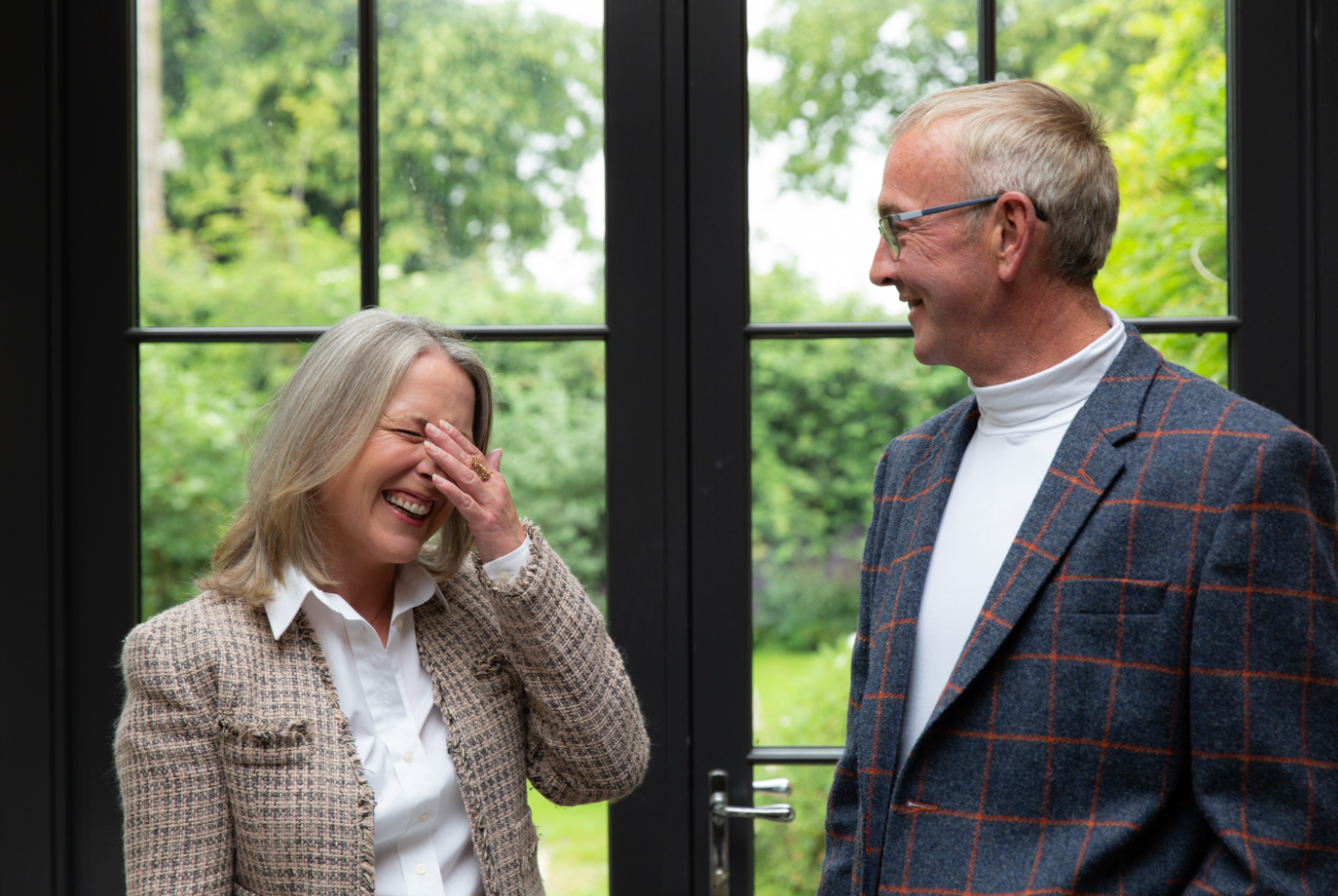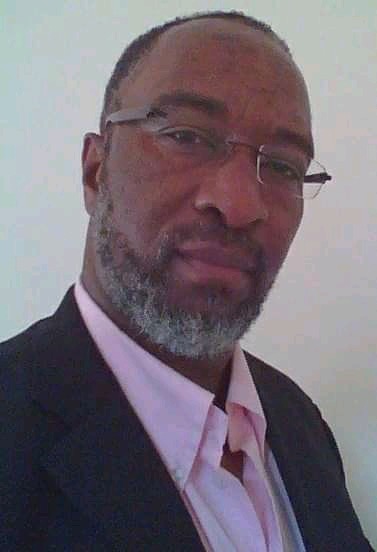1. Tell me a little bit about your background and how you ended up choosing your field.
My journey began far from the tech world—on cruise ships and in luxury resorts across over 90 countries. I was driven by a deep curiosity about the human experience and a servant’s heart instilled during years in hospitality. At 30, I made a pivot, diving into the world of IT, blending soft skills like empathy, communication, and adaptability with hard tech capabilities. That intersection—technology and human connection—has defined my path. Over time, I’ve evolved into a digital transformation leader and advocate for ethical AI, ensuring innovations prioritize people. From serving guests at sea to leading Fortune 500 AI initiatives and pioneering AI training in the travel industry, it’s been about one thing: using technology to enhance—not replace—what makes us human.
2. What made you take the leap into entrepreneurship?
Entrepreneurship was a natural progression—a culmination of my travels, experiences in hospitality, and IT leadership. Together with my wife, Shelby, we co-founded TravelFun.Biz in 2019 to bridge a glaring gap in the travel and tech industries. We recognized that AI could empower agents, not displace them, and that travel—at its heart—is a profoundly human experience. Entrepreneurship gave me the freedom to build something aligned with my values: blending AI with empathy, enabling agents to thrive, and redefining what responsible innovation looks like. With a servant’s heart, I wanted to create not just a business, but a mission-led movement.
3. What were the biggest initial hurdles and how did you overcome them?
One of the biggest hurdles was skepticism around AI. Many travel agents feared they would be replaced by machines. The challenge wasn’t technical—it was emotional. We needed to shift the narrative from fear to empowerment. I overcame this by designing the AI Tools for Travel Agents Training Program, which showed agents how AI could automate mundane tasks while amplifying their unique human strengths like empathy and creativity. Education, transparency, and a step-by-step onboarding approach helped us build trust and transform doubt into confidence.
4. What are 3 tips you can share with our readers as it relates to your industry?
First, embrace technology but don’t abandon empathy—AI should amplify your humanity, not diminish it. Second, niche down—specialization builds trust and authority. At TravelFun.Biz, we encourage agents to own a specific market like river cruises or adventure travel. Lastly, invest in continuous learning—from AI to social media trends, adaptability is key. Staying current keeps you competitive and builds resilience in a rapidly evolving landscape.
5. How do you personally define success? What does it mean to you?
Success, for me, is measured by the positive human impact I create. It’s not about profits or accolades—though I’m honored by them—but about how many people I’ve empowered to thrive in their roles. Whether it’s a travel agent who regains confidence thanks to our AI tools or a corporate team navigating transformation with greater ease, success means I’ve served someone, elevated their experience, and left them better than I found them. That’s the legacy I strive for every day.
6. How do you differentiate yourself from others in your field?
My approach fuses global hospitality experience with cutting-edge tech leadership—two worlds that rarely intersect. Most technologists haven’t worked as butlers on luxury cruise ships; I have. I know firsthand how critical human connection is, and I bring that awareness to every AI implementation I lead. Whether at TravelFun.Biz or in a Fortune 200 call center, I champion a human-centric model where AI supports people rather than replaces them. I’m also a lifelong learner—holding over 17 AI-related certifications—and an ethical AI advocate, having published the Human-Centric AI Manifesto to guide innovation with integrity.
7. What was the biggest business mistake you made and what did you do to learn from it?
Early on, I underestimated how deeply people fear change. When introducing AI tools, I focused too much on features and not enough on emotional reassurance. That misstep led to slow adoption and resistance. I learned to lead with empathy, listening more and involving users earlier in the process. Now, whether it’s a corporate migration or a training rollout, I prioritize transparent communication and human-centered design. Mistakes are powerful teachers, especially when they push you to serve better.
8. How did you deal with pushback from family or friends concerning your entrepreneurial pursuits?
There was definitely concern—stepping away from corporate security isn’t an easy decision. But I’ve always followed a compass rooted in purpose, not convention. I explained that TravelFun.Biz wasn’t just a business; it was a platform to uplift others and create meaningful change. Having Shelby as a co-founder helped, as we shared the vision. Over time, results and impact quieted the doubts. Entrepreneurship is a leap of faith, but it’s also a call to serve at scale—and that resonated with those close to me.
9. What advice would you give to someone asking for advice about becoming an entrepreneur?
Start with “why.” Your purpose will be your anchor through uncertainty. Surround yourself with people who challenge and uplift you. Be prepared to wear every hat and solve problems you didn’t anticipate. And most importantly—build something that serves others. If your product or service genuinely improves lives, the business will follow. Use setbacks as tuition. Learn, iterate, and keep your mission front and center. Entrepreneurship is less about having all the answers and more about being committed to finding them.
10. We are entering an era where everyone is interested in multiple income streams. How does one decide on a business to pursue?
Look for alignment between your passion, skills, and a real-world need. For me, the intersection of travel, technology, and human empowerment was a no-brainer. A good business isn’t just profitable—it solves a problem. If you’re excited to wake up every day and contribute to that solution, it’s likely the right path. And in this AI-enabled age, you can scale more quickly and serve more people if your idea is tech-enabled. But always start with value creation over income.
11. What would you say was the single most influential factor in your business’ success?
Without a doubt—empathy. Every successful training program, every AI rollout, every transformation initiative has been grounded in understanding people’s needs, fears, and aspirations. It’s not the tech that makes the difference—it’s how you make people feel empowered by it. Whether guiding agents through new tools or leading Fortune 200 teams through change, I lead with a servant’s heart. That connection builds trust, and trust is the foundation of every successful business.
12. Name 3 people in the business world who inspire you the most?
- Simon Sinek – for always reminding us to lead with “why” and putting people before profits.
- Satya Nadella – for transforming Microsoft’s culture with empathy and inclusive leadership.
- Indra Nooyi – for her holistic leadership style that balances performance with purpose. Each of them proves that leading with heart and vision is not only possible, but essential in today’s world.
13. Who is your hero and why?
My hero is my Maitre D’ at the Montrealais Bistro—Lance Farrell—who, in 1996, told me, “Go travel the world, but have a real career by the time you’re 30.” That advice changed everything. It gave me permission to explore, to live fully, and to eventually return with a purpose. He ignited a journey that shaped who I am today—an empathetic technologist, a global thinker, and a leader who blends service and innovation.
14. What 3 books would you recommend every entrepreneur read?
- Start With Why by Simon Sinek – to build a purpose-driven business.
- The Lean Startup by Eric Ries – for its actionable approach to innovation.
- The Infinite Game by Simon Sinek – to think long-term, beyond quarterly goals. These books challenge you to build resilient, meaningful ventures grounded in service and growth.
15. What do you do to recharge when you are feeling drained?
Nature is my sanctuary. Whether it’s sailing, fishing, jogging, scuba diving, or snowboarding, immersing myself in the outdoors helps me reconnect with what matters. Travel, unsurprisingly, still recharges me too—especially off-the-beaten-path experiences that expand my perspective. And when I need stillness, I unplug entirely, reflect, and remind myself why I started. Rest isn’t just about stopping—it’s about restoring your spirit so you can continue to serve with passion.



